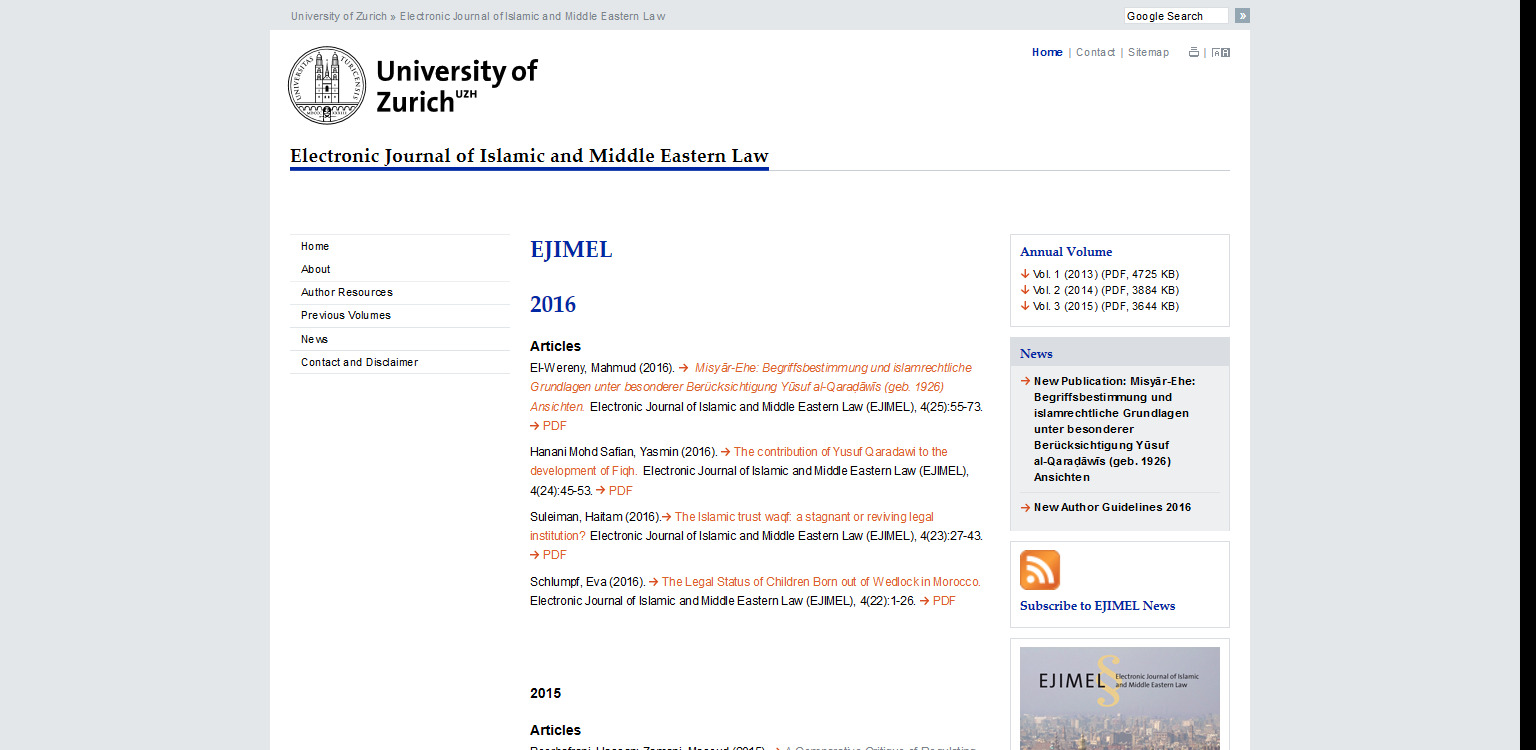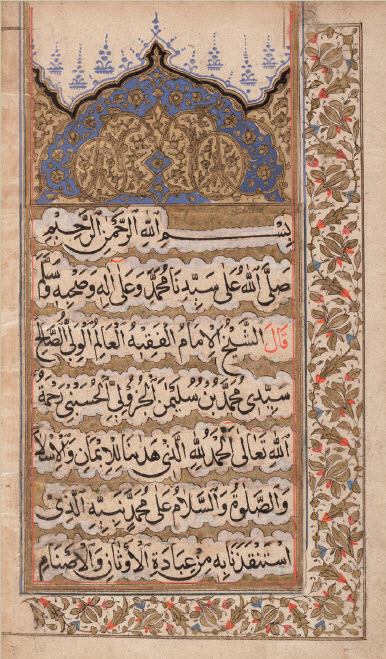Electronic Journal of Islamic and Middle Eastern Law (EJIMEL) is an online Open Access journal started in 2012 by the Center for Islamic and Middle Eastern Legal Studies (CIMELS) at University of Zurich (Switzerland).
 EJIMEL publishes articles, primarily in English and German, focusing on : democracy, constitutional law, Islamic law theory, family law, human rights, as well as the relations between Islam and national and international law orders. As explained on EJIMEL’s website: “the editors aim is to foster a vivid debate focusing on the correlation between Islam as a religion with a distinct body of legal norms and the paramount principles and guarantees of current international law, as well as to inquire into key phenomena in Muslim-majority law orders such as, e.g., “Re-Islamisation”, which have influenced both codifications and scholarly discourse in a significant way.”
EJIMEL publishes articles, primarily in English and German, focusing on : democracy, constitutional law, Islamic law theory, family law, human rights, as well as the relations between Islam and national and international law orders. As explained on EJIMEL’s website: “the editors aim is to foster a vivid debate focusing on the correlation between Islam as a religion with a distinct body of legal norms and the paramount principles and guarantees of current international law, as well as to inquire into key phenomena in Muslim-majority law orders such as, e.g., “Re-Islamisation”, which have influenced both codifications and scholarly discourse in a significant way.”
Published once a year, EJIMEL is referenced in the Directory of Open Access Journals (DOAJ). Articles, are preserved in PDF in the University of Zurich institution repository ZORA, are given a DOI and published under the Creative Commons Licence. As long as properly cited and used, every article can be copied, shared, or printed.
Check it out!


